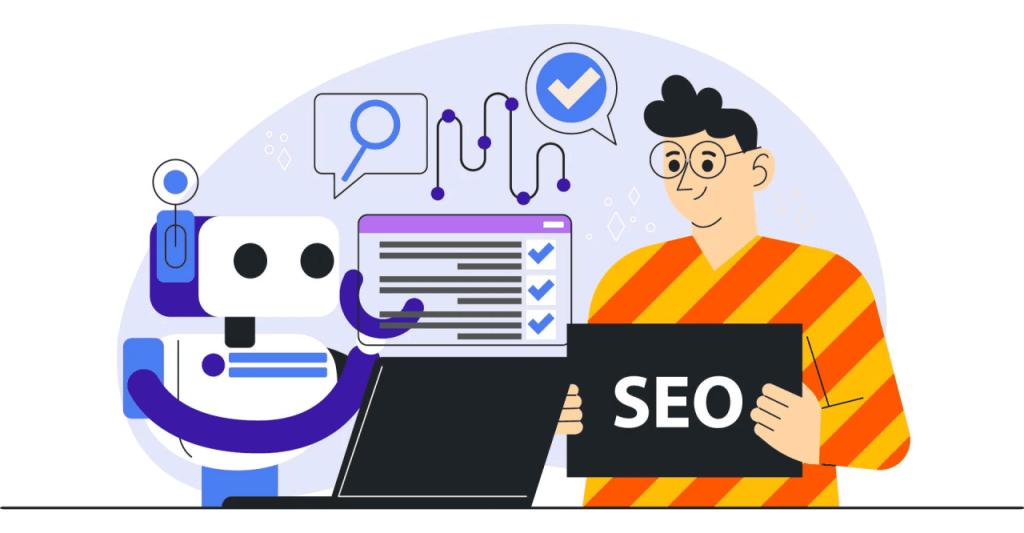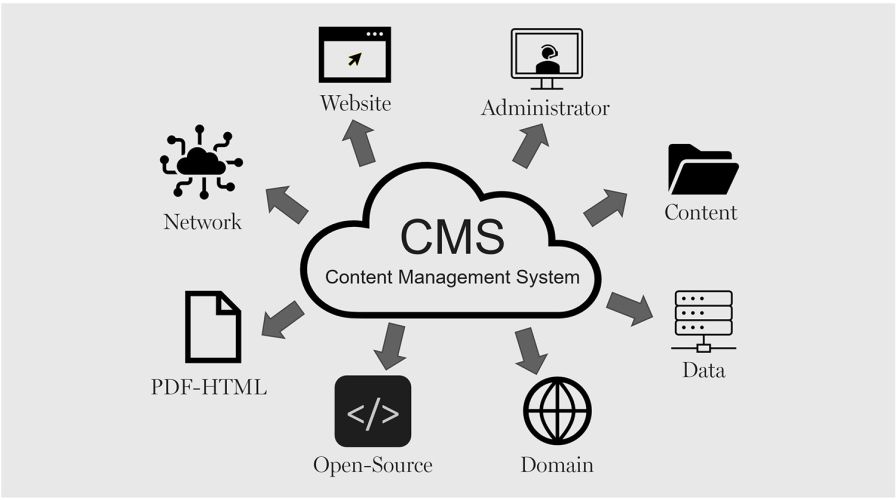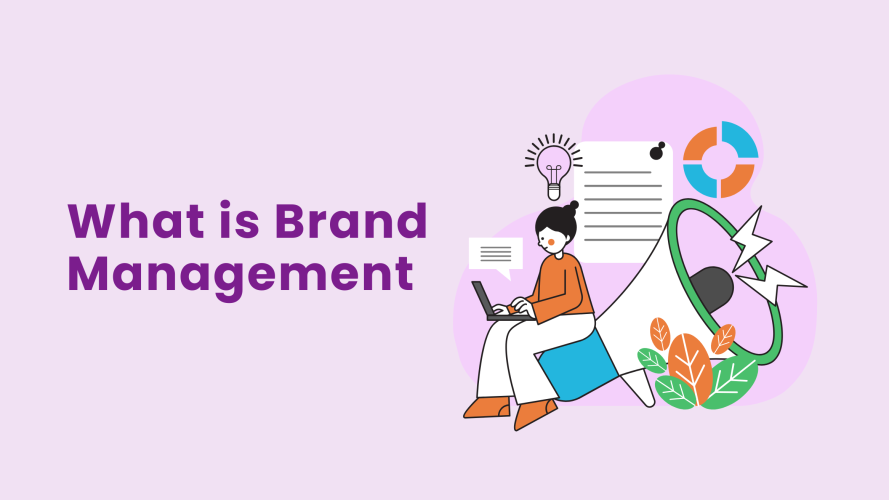
Search Engine Optimization (SEO) has evolved significantly in recent years, largely due to Artificial Intelligence (AI) integration. AI plays an increasingly prominent role in SEO, transforming how websites are optimized, content is created, and search engines rank pages. This article explores the intersection of AI and SEO, shedding light on how AI technologies are shaping the future of digital marketing.
1. Improving Keyword Research and Analysis
Keyword research is the foundation of any successful SEO strategy, and AI tools make it easier to understand not only which keywords to target but also how to use them effectively. With machine learning algorithms, AI tools can analyze millions of data points in seconds, providing insights into keyword trends, user intent, and competition levels.
AI-Powered Keyword Research Tools:
- Google’s RankBrain: Google’s AI algorithm, RankBrain, uses machine learning to better understand search intent, which means businesses need to align their content with user intent.
- SEMrush and Ahrefs: These tools now integrate AI capabilities to provide highly relevant keyword suggestions based on historical search data and predict trending topics.
- Surfer SEO: AI-driven tools like Surfer SEO help users optimize on-page SEO by suggesting ideal keyword density, content structure, and related terms.
2. Creating High-Quality Content with AI
Content remains a key pillar in SEO, but producing high-quality content consistently can be challenging. AI tools like OpenAI’s GPT models, Jasper, and Copy.ai now allow businesses to create SEO-friendly content more efficiently by generating outlines, drafting articles, and even suggesting content improvements. This not only saves time but also ensures that your content is aligned with the latest SEO best practices.
How AI Enhances Content Creation:
- Content Ideation: AI tools analyze search trends and suggest topics that resonate with your audience.
- Content Optimization: AI-powered tools like Clearscope and MarketMuse assess content relevance, structure, and readability, providing suggestions to enhance SEO value.
- Personalization: AI enables content personalization by analyzing user behavior data, allowing you to tailor content to specific user segments.
3. Enhancing On-Page SEO with AI-Driven Tools
On-page SEO is essential for ranking high in search engine results, and AI tools have made it possible to streamline and improve this process. From analyzing page structure to optimizing metadata, AI offers actionable insights that enhance every aspect of on-page SEO.
AI Tools for On-Page Optimization:
- Yoast SEO and Surfer SEO: These tools provide real-time feedback on SEO elements, such as header tags, keyword density, and readability scores, ensuring every piece of content is optimized for search engines.
- BrightEdge: BrightEdge uses AI to analyze pages in real time, suggesting improvements that align with Google’s latest algorithm changes.
- Image Optimization: Tools like Cloudinary and Adobe Sensei use AI to automatically optimize images for SEO, ensuring fast load times and proper alt tags for search engine visibility.
4. Elevating User Experience (UX) for Better SEO Performance
User experience (UX) has become a critical factor in SEO. Search engines now prioritize websites that deliver fast, engaging, and intuitive experiences. AI is invaluable here, as it helps analyze user behavior, identify pain points, and personalize the user journey, all of which contribute to better SEO performance.
AI in UX Optimization:
- Website Personalization: AI-driven platforms like Dynamic Yield and Adobe Target enable personalized experiences based on individual user preferences.
- Behavior Analysis: Tools like Hotjar and Crazy Egg use AI to analyze user interactions, providing insights into which areas of the site need improvement.
- Chatbots and Virtual Assistants: AI-powered chatbots enhance UX by offering immediate assistance to users, which can reduce bounce rates and increase conversions.
5. Automating Technical SEO with AI
Technical SEO can be time-consuming and complex, involving tasks like site audits, speed optimization, and ensuring proper indexing. AI tools help automate these tasks, making it easier to maintain a technically sound website that meets search engine standards.
AI Tools for Technical SEO:
- Deepcrawl and Screaming Frog: These AI-driven tools crawl websites, identify errors, and offer solutions for issues like broken links, missing metadata, and slow loading times.
- Google’s Mobile-Friendly Test: AI tools evaluate mobile responsiveness, which is crucial for SEO as mobile-first indexing becomes the norm.
- Algorithm Compliance: Platforms like Moz and Ahrefs keep you updated on algorithm changes and how they might affect your site’s SEO, helping you stay compliant with search engine standards.
6. Optimizing Voice Search and Visual Search
With the rise of smart speakers and visual search technology, optimizing for voice and image search has become essential. AI tools like Google Lens and Amazon’s visual search algorithms have transformed the way users find information, making it crucial for businesses to adapt their SEO strategies accordingly.
Strategies for Voice and Visual Search Optimization:
- Long-Tail Keywords: Voice searches tend to be conversational, so focusing on long-tail keywords is essential for voice SEO.
- Schema Markup: Implementing schema markup helps search engines understand your content better, which is beneficial for both voice and visual search.
- Image and Video SEO: Use descriptive file names, alt text, and relevant keywords for images and videos, making them easily discoverable in visual search engines.
7. Predicting Trends and Adapting SEO Strategy
AI can analyze massive amounts of data in real time, making it easier to predict upcoming trends and adapt SEO strategies accordingly. Trend analysis allows businesses to stay one step ahead of competitors by adjusting content, keywords, and strategies to meet shifting consumer interests.
AI Tools for Trend Analysis:
- Google Trends: Use Google’s AI-powered trend analysis to track shifts in search interest over time.
- BuzzSumo: AI-powered tools like BuzzSumo help identify trending topics and popular content within your industry.
- SEO Forecasting: AI platforms can forecast keyword rankings and traffic based on historical data, helping you make informed decisions.
Conclusion: Embracing AI to Revolutionize Your SEO Strategy
As AI continues to evolve, its impact on SEO becomes increasingly evident. From keyword research and content creation to on-page SEO and technical audits, AI-driven tools offer significant advantages for businesses looking to optimize their search engine performance. By embracing AI in your SEO strategy, you’re setting your business up for success in a competitive digital world.




